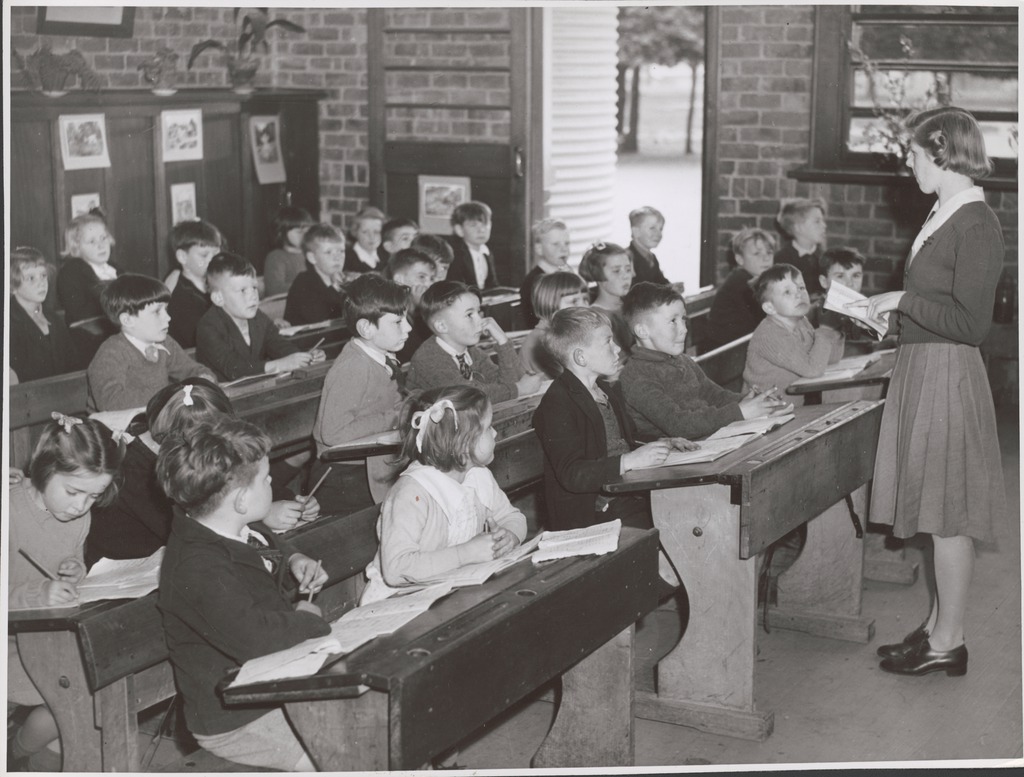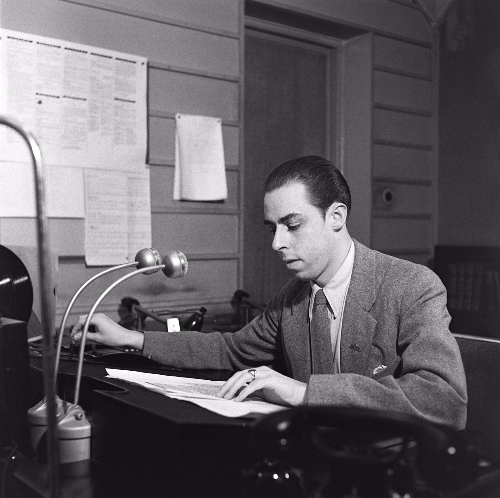

- © 2003 - 2025 Dynamix Productions, Inc. Contact Us 0



"In radio, they say, nothing happens until the announcer says it happens."
Ernie Harwell
Legendary Detroit Tigers Announcer
There was a time when Americans who wanted to sound important and upper class spoke with a half-American, half-British accent. They call it mid-Atlantic, presumably because the accent lands somewhere in the middle of the ocean between our countries. It was dominant in movies, on radio, in theaters, and on early television. Today, it sounds pompous. Some early practitioners were Franklin Roosevelt, James Cagney, Orson Wells, and Katherine Hepburn. Some more contemporary holdouts were William F. Buckley, George Plimpton, and Jacqueline Kennedy Onassis.
One of the specific speech patterns was the dropping of the "r" in a word. This non-rhotic delivery can be heard in FDR's famous speech "We have nothing to feeah, but feeah itself." Even news announcers spoke with some of this opulent elocution. (Dig up almost any news reel from the 1950's back and you can hear it.)
The late Dudley Knight, an actor and speech/dialect expert and teacher, wrote that this early announcer style was "a pattern that mandated the extreme extension of vowel sounds often with a tremulous dying fall of intonation when a word is to be emphasized, so that the lines were more sung than spoken; a pattern that required syllables - which in ordinary conversation are unstressed - to be stressed with discrete vowel sounds… (so that "ocean" becomes 'owe-see-yun')"
Why, oh why did they speak this way? Some theorize that it started with the birth of sound recording. Early recorders like the wax cylinder and wire recorder needed loud volumes to move the recording needle. Therefore, announcers and musicians were instructed to talk or play loudly into the bell that collected the sound. Listen to Florence Nightingale in 1890 practically shout in this recording. The socialites of Long Island, especially the North Shore already had a similar speech pattern that became associated with New York's upper class. Families such as the Roosevelts, Hepburns, Bouviers, and Buckleys spoke with the Locust Valley Lockjaw.
Once silent films gave way to the talkies, many moviegoers were surprised to hear that many of the actors they adored also spoke mid-Atlantic. If imitation is the sincerest form of flattery, then many Americans were sincere about being perceived as upper-class, and a fancy accent was the ticket. Even George Gershwin, born and raised in the Bronx, learned to speak posh. By the time recording technology improved so one didn't have to shout and draw words out, the style was firmly entrenched. The "class war" was on.
So why don't we speak this way anymore? World War II played a huge part. It literally made the U.S. a world superpower almost overnight. What followed was an unprecedented period of prosperity for most Americans. Suburbs sprung up like weeds, interstate highways connected the country, and television exploded. In 1947, almost 180,000 televisions sets were manufactured. Just 6 years later, more than 7 million were made. In 1959, a whopping 67 million sets were made. This introduced audiences to new actors, announcers, and personalities. James Dean and Marlon Brando talked different. Walter Cronkite brought a more sensible dialect to the news. And Elvis Presley brought southern charm.
By the 1960's and 70's, the mid-Atlantic inflection became more of an affliction. Many actors invoked the Locust Valley Lockjaw into their characters for great comedic affect: Thurston Howell III on Gilligan's Island; Dr. Smith on Lost in Space, Jane Hathaway on Beverly Hillbillies, and Major Charles Emerson Winchester III on M*A*S*H.
Today, we hear all kinds of accents on TV and radio. The "class war" of accent seems to be over. The "upper class" seem to be from all over, and they sound like the rest of us - a millionaire with a Texan drawl, a politician with a hillbilly accent, a megalomaniac billionaire from New Yawk.
So don't be fooled by those old-time announcers with their phony accents. As Thurston Howell III said, "No one can pull the wool over my eyes. Cashmere maybe, but wool, never!"